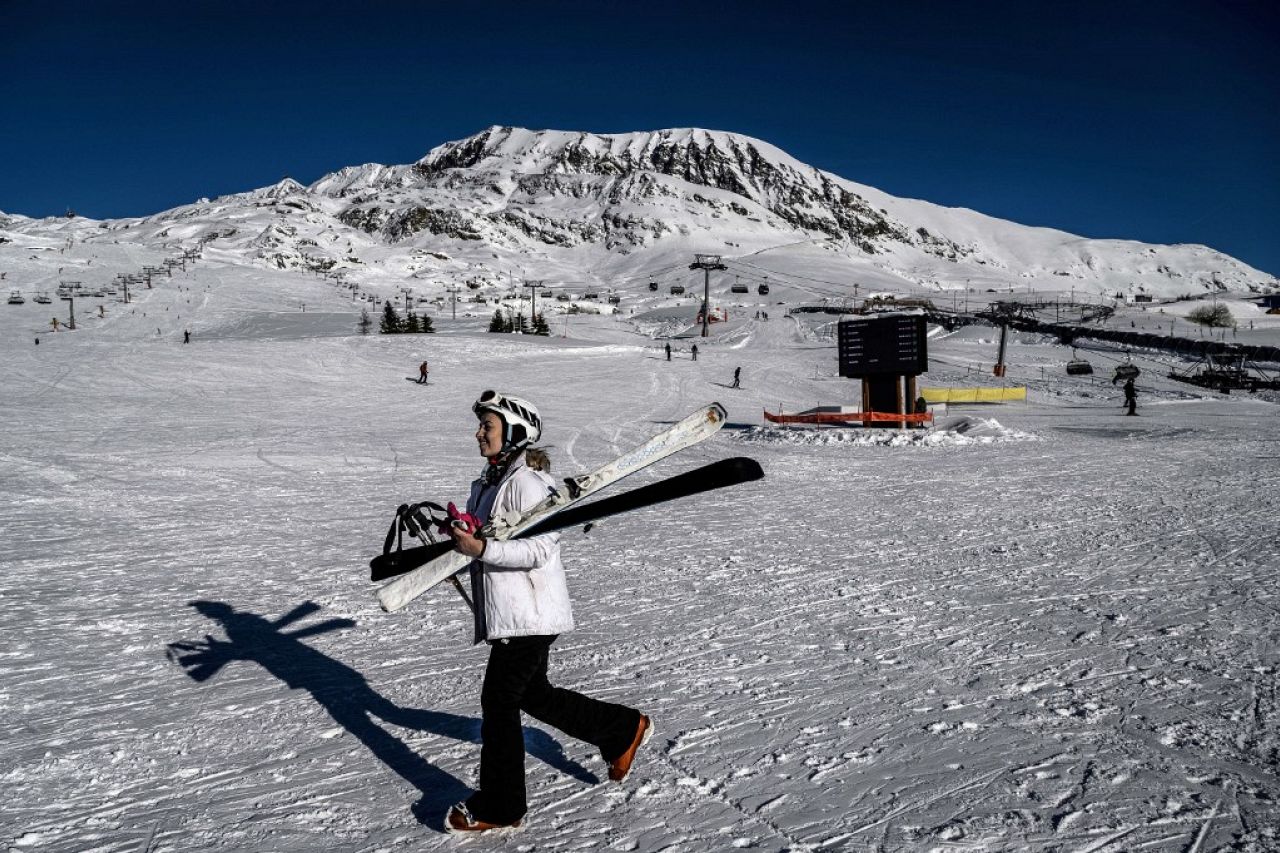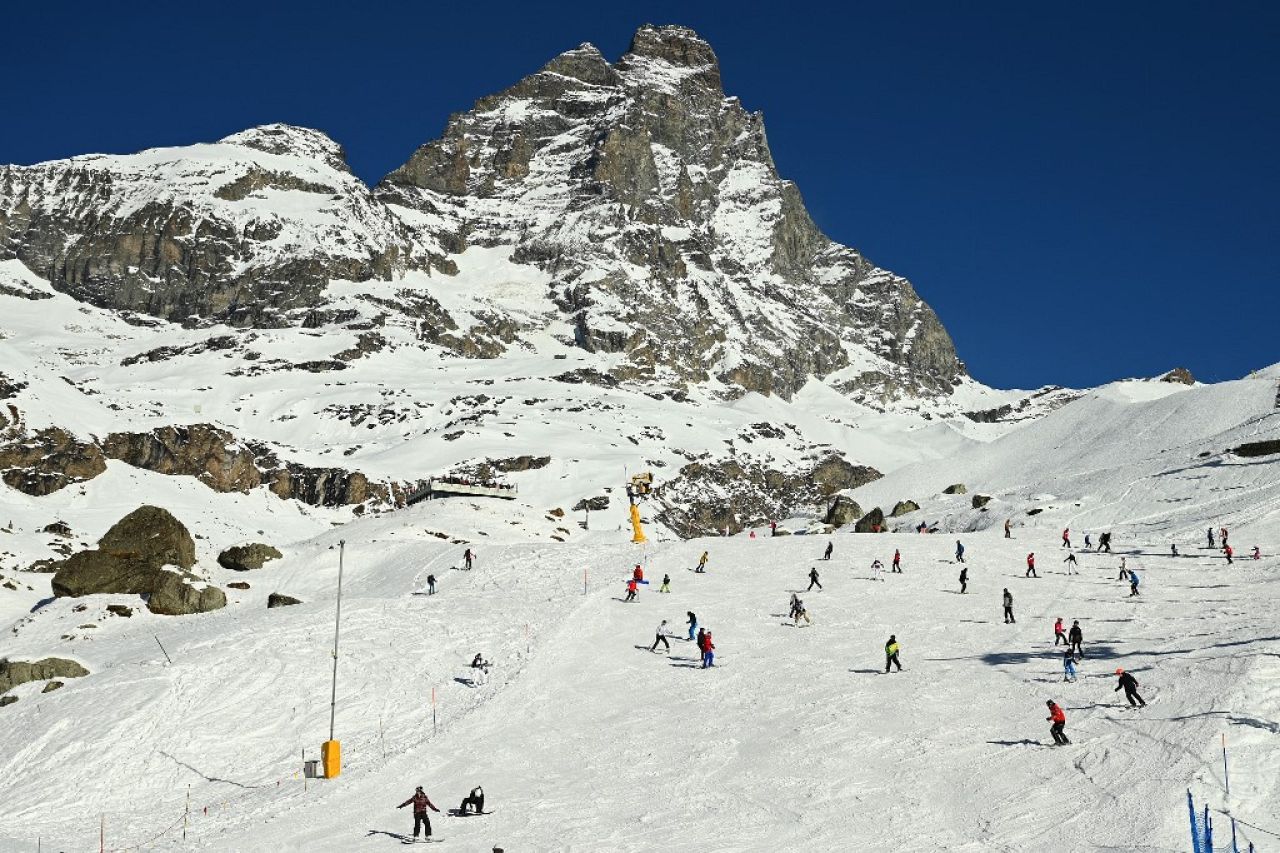These are the latest updates as travel rules ease across Switzerland and Austria.
It might be peak ski season but as Omicron cases soared across Europe, travel restrictions were tightened in many top winter sports destinations.
 ADVERTISEMENT
ADVERTISEMENT
 ADVERTISEMENT
ADVERTISEMENT
Now the rules are starting to ease as Austria and Switzerland remove some requirements for tourists looking to hit their snowy slopes.
But with yet another season under COVID-19 restrictions, it can be difficult to plan a ski holiday around these changing rules and regulations.
So we’ve put together everything you need to know for some of Europe’s favourite ski spots.
Austria
Austria’s travel restrictions were previously summed up by its tourism minister as “strict rules, safe winter” but things have tightened up in recent weeks with the spread of the Omicron variant.
Skiers looking to travel to the country will have to provide proof that they are fully vaccinated or recovered from the virus, as well as having either proof of a booster jab or a negative PCR test. I
Once you arrive, Austria’s ‘2G’ rule is in place for all use of cable cars and other facilities. It stands for vaccinated or recovered meaning you will need to provide proof of full vaccination of recovery from COVID-19. A negative test will not be accepted unless you have official proof of exemption from the vaccination.
Children under the age of 12 are exempt from the 2G requirements and teenagers over the age of 12 can either provide proof of vaccination or sign up for the ‘Holiday Ninja Pass’. This scheme allows them to enter venues using negative tests instead. More details can be found here.
Since late December, après-ski venues have also been closed and restaurants have a curfew of 10pm. Masks are also required inside cable cars and other enclosed spaces in this country.
It's worth checking out the individual restrictions for the state that you plan to travel to as they can have stricter requirements than those that apply to the whole of Austria. In Vienna, for example, testing is mandatory for children from the age of six.
France
Currently, unvaccinated travellers from countries on France’s red and orange list can only travel to the country for a limited number of essential reasons. People from the UK, vaccinated or not, can’t travel to France as tourists but there have been indications from the government that these rules could soon be relaxed.
If you are able to get to a ski resort in this country, a health pass is also required to access facilities like ski lifts, bars, cafes and restaurants. It requires you to provide proof that you are fully vaccinated, recently recovered from COVID-19, or have a negative PCR or antigen test taken within the last 24 hours.
This applies to everyone over the age of 12 and will soon transform into a vaccine pass meaning negative tests will no longer be accepted.
Masks are required to queue for ski lifts and on enclosed cable cars - but not if you are taking an open chair lift or actively skiing down the slopes. There are no medical exemptions and if you don’t wear a mask you could be facing a fine of €135.
But check the resort you are planning to visit as some local authorities have put even stricter rules in place including outdoor mask-wearing.
Germany
Travel restrictions to enter Germany are relatively strict due to the spread of the Omicron variant.
Germany uses a two-tier system for its restrictions with 'high risk' and 'low risk' areas. Travel for tourism is possible from EU countries and Schengen-associated states but you need to check which area you fall under.
All arrivals over the age of 12 from high-risk areas have to present proof of vaccination, recovery or a negative PCR test. Unvaccinated travellers will also have to self isolate for 10 days.
For those people coming from outside of this area, the rules can vary depending on whether your country is on the ‘safe’ list.
Some ski resorts in Germany are open but there are stringent rules in place in many locations.
Similar to Austria, the 2G vaccinated or recovered rule applies to many indoor spaces including restaurants, bars and leisure facilities. Comments from the German government indicate that this is likely to be tightened from 15 January to bring in 2G+ which will mean you also have to provide a negative COVID test.
Requirements can vary depending on the state, however, 2G+ rules are already in place in Bavaria and ski resorts are closed in some areas. So it's best to check what is happening at the resort you plan to travel to before making any decisions.
Italy
To enter Italy, skiers will have to have to show proof of vaccination or recovery alongside a negative PCR test taken within 48 of arrival or antigen test within 24 hours.
New rules have just been introduced by the Italian government specifically for ski resorts after cases soared at the end of last year. Before now, a green pass, which you could obtain with a negative COVID test, would grant you access to the slopes in white or yellow risk areas.
But from 10 January a super green pass is required to access ski slopes across the country. It applies to anyone over the age of 12 and means you need to either be fully vaccinated or have proof of recovery from the virus.
When your ski passes are checked, this super green pass will also be verified. FFP2 or medical masks are also mandatory on ski slopes and anywhere where it isn’t possible to keep an appropriate distance including in outdoor queues.
The super green passes will also be needed to enter bars or restaurants as well as to eat in outdoor seating areas. After the recent change in the rules, unvaccinated people will no longer be able to use a negative COVID test to enter these places.
Switzerland
Switzerland has dropped its requirement for pre-travel PCR testing for vaccinated visitors from 22 January. People who can prove that they have recently recovered from COVID are also allowed to visit without a pre-travel test.
The rules for ski resorts across Switzerland were released back in October 2021 as the government agreed that no certification would be required to access the slopes in the country.
A COVID certificate, which shows if you have been vaccinated, recovered or tested negative, will however be required to enter any indoor bars, restaurants or other facilities.
You won’t need one if you only plan to eat in outdoor seating areas.
Masks are required on chairlifts or cable cars and some resorts are restricting capacity to help stop the spread of the virus. Individual resorts are also able to place any further restrictions on travellers that they see necessary.
So check before you leave for your ski break - especially if your final destination is on the border with another country where stricter restrictions may be in place.












